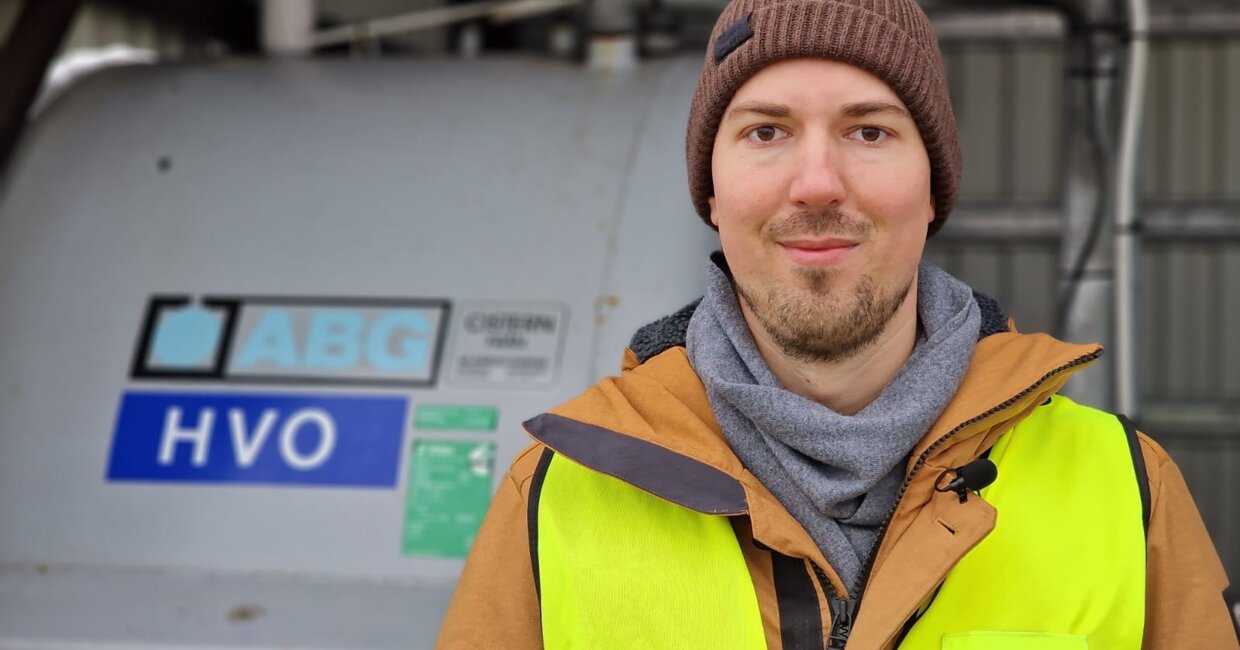
Fossil-free fuels support Copenhagen Malmö Port’s sustainability strategy
With several ambitious sustainability targets on the horizon, Copenhagen Malmö Port made moves to drive down its carbon footprint with Kalmar Eco Reachstackers, powered by fossil-free Hydrotreated Vegetable Oil (HVO).
Copenhagen Malmö Port is one of the biggest and busiest ports in Scandinavia.
Connecting Denmark and Sweden across the Øresund Strait, Copenhagen Malmö Port is the gateway to the Baltics region. Its location, high-quality infrastructure, and connectivity with other ports has helped Copenhagen Malmö Port become a major regional transport hub, a conduit for freight in and out of the Baltic Sea, and northern Europe’s leading cruise destination.
In total, over 4,500 ships and 15 million tonnes of freight flow in and out of Copenhagen Malmö Port’s waters every year.
Alternative fuels support Copenhagen Malmö Port’s net zero targets
But as well as being one of the most active ports in the world, Copenhagen Malmö Port also wants to become one of the most sustainable, with a goal of becoming climate neutral regarding CO2 by 2025, and climate positive by 2040.
To get there, Copenhagen Malmö Port is actively working to phase out all fossil fuels within its operations, and increase its use of renewable fuels such as HVO or green energy sources.
HVO reduces Copenhagen Malmö Port’s fossil diesel consumption by 60,000 liters per year
Hydrotreated Vegetable Oil (HVO) is a fuel made from cooking oil and other waste and residue fats. Sometimes called ’renewable diesel’, switching to this fossil-free alternative can help reduce machinery greenhouse gas emissions by as much as 90%.
”HVO is a fast and cost-efficient way to start reducing your emissions today.” - Mette Kjems Baerentzen, Director of Decarbonisation, Kalmar.
In November 2023, the Copenhagen side of Copenhagen Malmö Port began gradually phasing HVO into its port equipment at the container terminal, the ship-to-shore cranes at which are exclusively powered using renewable energies, including wind, solar and hydro.
HVO can be more expensive to buy than regular diesel, but Jonatan Stoltz, Environmental Manager at Copenhagen Malmö Port, is focused on the bigger, long-term picture.
”Copenhagen Malmö Port is aiming to become one of the most sustainable ports in the world,” he explains.
”To be able to reach this goal, we evaluate all our investments equally regarding price, quality and sustainability factors. So even if an investment has a higher cost, this can be accepted if it leads to a better environmental or social impact compared to an economically cheaper alternative.”
Using HVO to fuel its Kalmar Eco Reachstackers has helped Copenhagen Malmö Port reduce the facility’s annual carbon emissions by 840 tonnes, an 81% reduction of its overall carbon footprint.
More eco-efficient than traditional reachstackers, Kalmar Eco Reachstackers can reduce fuel consumption by up to 40%, helping operators reduce emissions while simultaneously maintaining existing operational productivity levels.
相关文章
扩展阅读
订阅我们的刊物
订阅我们的出版物

